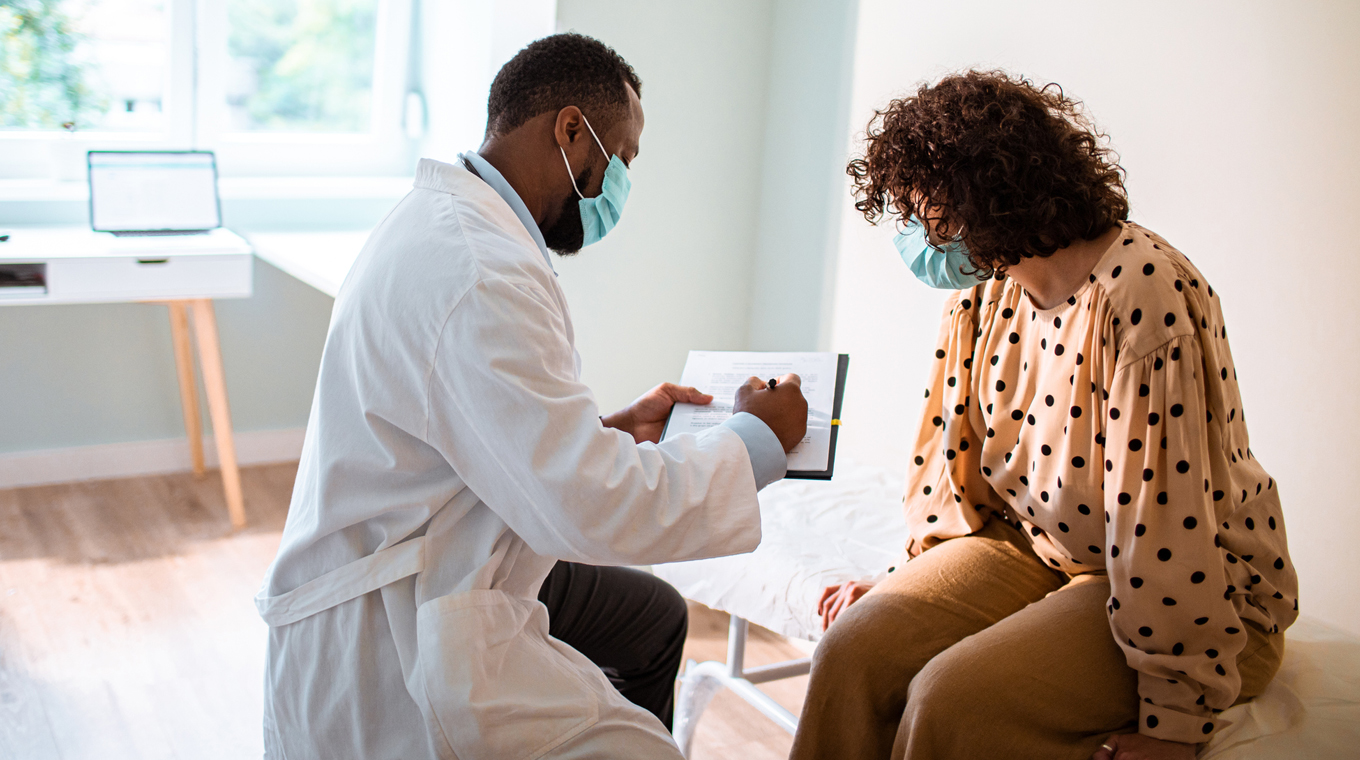
In this article
When we think of self-care, thoughts of long showers, getting our nails done, and doing a face mask come to mind, but there are actually way more important ways we need to be taking care of ourselves, too — like making sure we get to our annual physical each year. Life gets busy, and it's so easy to put these kinds of appointments off, but if we want to stay healthy, it's an absolute must to keep the lines of communications open with our primary care physicians.
During these kinds of doctor's appointments, your vitals will be taken and your doctor will ask questions about your health history over the past year, but you will also have the opportunity to ask questions, too, and this is something you should definitely take advantage of. After all, it's your health we're talking about, and nobody knows your body better than you.
But what questions should you ask? These 10 questions are a good place to start.
Note: During COVID-19, ask your doctor about virtual office visits. If you are seeing a doctor in person, make sure to ask about the facility's safety measures and confirm that they are following COVID-19 protocols as indicated by the Centers for Disease Control and Prevention (CDC).
What types of health tests do I need?

Though annual physicals will routinely include certain lab tests, there are some that you'll want to ask your doctor about, especially if you are experiencing symptoms that may indicate that something is awry with your health.
1. Are your vitamin D levels normal?
According to what Dr. Shadi Vahdat of LiveWell Integrative Medicine told Mom.com, a lot of people suffer from a deficiency, and this can lead to big problems down the line. "Current research shows us that vitamin D3 deficiency also plays a critical role in a wide variety of other conditions such as diabetes, hypertension, depression, autoimmunity, chronic fatigue syndrome, Alzheimer’s disease, and the development of cancers such breast, prostate, and colon cancers," Dr. Vahdat said.
2. Are your thyroid levels normal?
Dr. Vahdat also recommends that women especially get checked for a thyroid disorder, as 60% of these issues go undiagnosed and women are up to eight times more likely to suffer from these issues than men.
3. Are you up to date on vaccines?
Your primary care physician should have access to their schedule of vaccines and your records, but the CDC recommends all adults get a flu shot each year, as well as a Td booster shot every 10 years to protect against tetanus and diptheria.
4. What is your blood pressure?
Though what a normal blood pressure is may vary from person to person, generally, it's 120/80. This is another important vital sign to check at these appointments, as it can indicate bigger issues at hand.
5. What is your blood sugar?
If you've been experiencing symptoms of low blood sugar, this is a great opportunity to find out what's going on. The American Diabetes Association notes that feeling shaky, nauseous, or lightheaded are all symptoms of low blood sugar. Normal sugar levels in the blood are less than 140 mg/dL, and your doctor can help you find out if that's where you're at.
Questions about mental and emotional health

Though a primary care physician is obviously not a psychiatrist or a therapist, addressing any questions about mental or emotional health with them is a great place to start — especially if your insurance requires referrals from a GP to cover any specialist visits.
6. Bring up any symptoms of depression or anxiety you've been having
If you've been struggling mentally or emotionally lately, this is a great time to say so. It can be hard to open up about mental health, but it's the essential first step to feeling better.
7. Ask any questions about current medication and treatment
If you're already being treated for anxiety or depression and have questions about your current treatment plan, this is a great time to ask questions about that, too. It's also possible your doctor will be able to change your dosage or prescribe you something different if what you're currently taking isn't working for you.
Questions about specific needs: Your family health history and your future

Your visit should be personalized to your needs, so make sure you're asking questions about your medical history, and where you hope or expect to be in the future.
8. How does my family history affect my health?
Make sure and discuss your family's health history with your doctor, and disclose any illnesses, ailments, and addictions. Dr. Vahdat pointed out that depending on your family's history of disease, your doctor may be able to recommend that you change things up about your diet or habits to avoid conditions you might be more prone to, like diabetes or heart disease.
9. How much should I weigh?
Your doctor can help you determine what a healthy weight for you is, and whether there are any changes you need to make to your workout routine or diet to reach your goals.
10. Is your body prepared for your future goals?
Are you planning on trying a new diet, preparing to run a marathon, or even trying to conceive? This is a good time to bring it up with your doc and get their opinion.
The right doctor won't mind answering all of your questions and taking the time to make sure you're comfortable with your health and your plan going forward by the time you leave their office, so don't be shy! "She seems to respect the fact that I have a lot of questions. She takes her time with me and isn't in a rush," a patient named Amy told CNN in a story about finding "Dr. Right."
If you feel rushed or uncomfortable, you're within your rights to find a new doctor. You're in charge of your health, and you call the shots.



